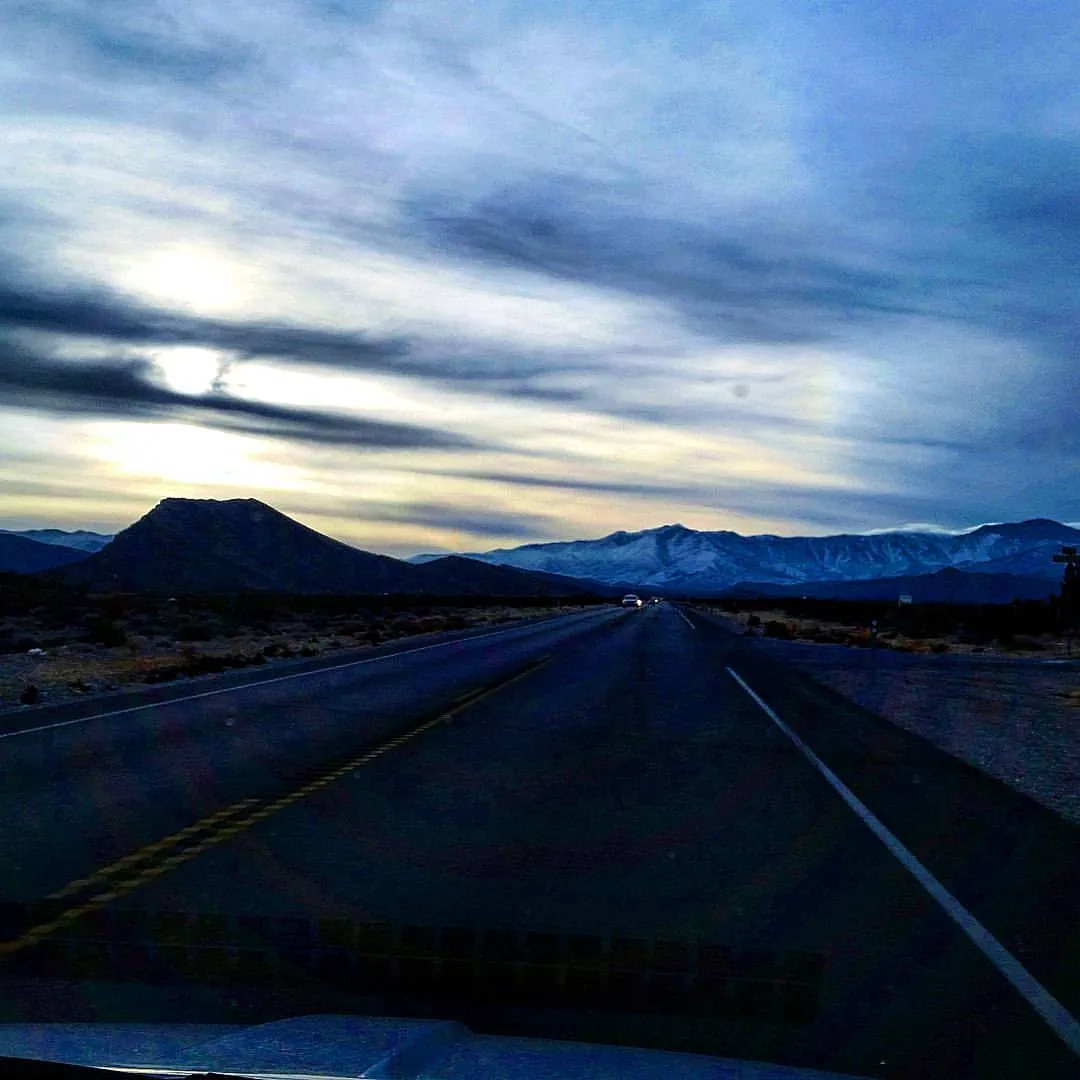Word Count: 938 | Est. Reading Time: 3:25 min | Readability Rating: B
Intro
I've been thinking a lot about how different tones respond on social media. I'm not sure I have any good answers. But in the most non-scientific sense, this is where my head is at right now - at least partially.
Recovery
Both the election and the past six years of reporting in Washington, D.C. had taken a massive toll on my physical and emotional health, and so I took several breaks in the lead-up to November and for several months afterward. When I returned, I resolved to post less about politics (at least on Facebook) and more about things that made me happy, like good music or beautiful photography.

Image: 'Nevada winter drive,' by Josh Peterson (2016) | Source: Instagram (@joshuadanpeterson) | Rights: (CC BY 4.0)
I took this photo while I was with my little sister on a drive out of the desert and into the mountains near Las Vegas in December 2016.
Observations
One of the more interesting things I noticed after the election, however, was a slow decrease in my social media "follower" count. It didn't bother me that follower numbers would fluctuate since this is part of the social media game. But what I found, and this is what bothered me about it, was that I would always lose a follower or two after I posted something positive.
The design of a platform has a huge influence on its user culture, and so I don't even blame my audiences for their lack of interest. Social media companies have gamified social interaction in such a way that you're incentivized to post things that other people want to see and less about what you want. And unfortunately, what I discovered, at least anecdotally, and much to my dismay, was that it seemed at least a portion of my audiences on these platforms responded better to negativity.
Now, in theory, this isn't completely true because social media allows you to post whatever you want and people can interact with it how they will. Everyone has their own tastes, and I don't have any real data to suggest this decrease on the platforms on which I've built my career, Facebook and Twitter, was due to the content change. And on balance, any time I posted an artistic image on Instagram my following would increase. So there's some suggestion that the responses were platform specific.
For all I know, my frustrations with these platforms could be completely in my own head.
Emotions and Incentives
Social media platforms, if we're really honest with ourselves about them, however, are massive online video games, and our profiles are characters in these games. But for better or worse, these games have real world consequences. And because they serve as massive revenue generating operations for the companies that run them, their creators themselves are incentivized to do whatever it takes to keep people on their platforms.
A study published in 2013 by China's Beihang University found that anger traveled "more quickly and broadly" on its Sina Weibo microblogging platform. Researchers at the University of California, San Diego, School of Medicine and Facebook published separate studies in 2014 suggesting that social media platforms magnified the spread of emotion across the globe. While the studies conflict on which emotions, negative or positive, travel better on social media, they do agree that strong emotions, regardless of their charge, are contagious.
All I ever really wanted to do with my life was write and play music with my friends, and I enjoyed posting about those things on my accounts. Somehow I ended up writing about politics instead, constantly angry about the state of the world, addicted to the process and the fight, and I continue to ask myself how the hell this happened.
If I'm honest with myself, though, it comes down to me - I'm always the common denominator in my frustrations. I chose my career and I chose my path. If I don't like what I'm seeing in my feeds, I need to change who I follow; and if I don't like the kind of content I am posting, then I need to make the changes and weather the fluctuations in the responses until my new audience stabilizes. I need to be the kind of content creator that I would want to follow. Because I want to build community around people who are inspired and inspirational and respond well to positivity and beautiful things.
Gratitude
That is one of the many reasons why I am so grateful for Steemit and the Steemit community. In the week or so that I've been on here, Steemit has already had a positive influence in my life. Not only have I noticed how positivity, thoughtfulness, and helpfulness are rewarded, I find myself wanting to interact more and more on this platform over the others because of that. People are using their platforms on here to improve the lives of others.
It gives me hope that the grand experiment of the Internet and social media hasn't been completely lost to the political and corporate charlatans of our day. And maybe one day I can just go back to playing my guitar with my friends.
Thank you for reading,
- Josh
View History
View Steemit blockchain activity/edit history | View draft edit history on Github | View My Steemit Archive on GitHub
Josh Peterson is a 2016 Robert Novak Journalism Program Fellow and a writer living in Denver, CO. Follow Josh on Steemit and Twitter. Keybase for secure chat. PGP Fingerprint: 4507 3000 1A40 2691 DAB8 ED65 A3EA 3629 73FD B7FF

This work is licensed under a Creative Commons Attribution 4.0 International License.